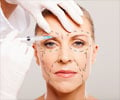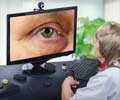High patient satisfaction with telemedicine visits was observed for plastic surgery follow-up, stated new study. Plastic surgery telehealth can enable real-time clinical decision-making and decrease patient travel and wait times.

‘Telemedicine is an emerging option for providing clinical information and enabling discussion between healthcare providers and patients.’





Study Extends Telemedicine Approach to Rural Patients after Plastic Surgery Dr. Nigriny and colleagues report the development and initial evaluation of a telemedicine system to improve access to follow-up evaluation after plastic and reconstructive surgery procedures for patients in rural areas. In preoperative surveys, the authors found that one-half of patients treated at their plastic surgery department had to travel at least 30 minutes for clinic visits.
Borrowing a quality improvement and defect reduction process that has proven effective in the business and manufacturing sectors (the Lean Six Sigma framework), the researchers developed a "testable workflow" for telehealth visits. This process addressed a wide range of issues to optimize clinical efficiency for remote follow-up evaluations, including cellular phone network requirements (at least 2G) and a secure, encrypted videoconferencing system.
On the day of the telemedicine sessions, a visiting nurse with specialty certification in wound care traveled to the patient's home. The visiting nurse used an iPad to enable visual examination and communication between the plastic surgeon and patient. The nurse was present to perform hands-on tasks like changing dressings and removing sutures.
The evaluation included 72 patients who underwent telemedicine visits for follow-up evaluation after non-cosmetic plastic surgery procedures. The patients lived in rural areas of New Hampshire or Vermont, with an average travel time of 30 to 60 minutes to the medical center.
Advertisement
But in a follow-up survey, nearly all patients expressed satisfaction with their telemedicine visit. Ninety-six percent of patients said they were able to get all their questions answered during the visit, and that they would use the telehealth option for future follow-up care.
Advertisement
Their experience demonstrates that an effective and clinically efficient telemedicine system can be developed for plastic surgery follow-up evaluations. "The addition of a telemedicine-based approach is associated with improved patient satisfaction, reduction of hospital costs, and potentially improved clinical outcomes," the researchers conclude.
"These results show that plastic surgery telehealth can enable real-time clinical decision-making, expand access to providers, and decrease patient travel and wait times," according to a video commentary by Plastic and Reconstructive Surgery Editor-in-Chief Rod J. Rohrich, MD. He adds, "Telemedicine programs like this could improve healthcare access in underserved, rural areas and eliminate barriers to care."
Click here to read "Innovations in the Plastic Surgery Care Pathway: Using Telemedicine for Clinical Efficiency and Patient Satisfaction"
DOI: 10.1097/PRS.0000000000005884
Source-Newswise















